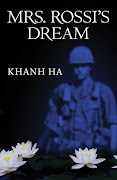Tuesday, January 29, 2013
Wednesday, January 16, 2013
Oh Mr. Perkins!
I think, in truth, that the best writing of all is done long after the events it is concerned with, when they have been digested and reflected upon unconsciously, and the writer has completely realized them in himself. It is good journalistic writing that is done quickly while everything is still new, but not the best writing. . . .
As to perhaps a couple years of college, I should think that might be of great advantage, in a general sense, but don't try to learn about writing there. Learn something else. Learn about writing from reading. That is the right way to do it. But then it can only be done by those who have eyes and ears, by seeing and listening. . . .
[T]he way they teach literature and writing in college is harmful. It results in one getting into the habit of seeing everything through a kind of film of past literature, and not seeing it directly with one’s own senses. . . .
(Editor to Author: The Letters of Maxwell E. Perkins, edited by John Hall Wheelock. Charles Scribner's Sons, 1979)
Friday, January 11, 2013
FLESH: What It Took to Write It
[Reprint from 'Guest Post by Khanh Ha' at Book Lover Stop Blog]
This novel, Flesh,
is set in Tonkin (now northern Vietnam) at the turn of the 20th century. It
tells the story of a sixteen-year-old boy who witnesses the execution, by
beheading, of his father, a notorious bandit, and sets out to recover his
father’s head, and then find the man who betrayed his father to the
authorities. A coming-of-age story of brutal self-awakening and also a tender
love story, Flesh takes the reader
into places, both dark and wonderful, in the human condition where allies are
not always your friends, true love hurts, and your worst enemy can bring you
the most solace.
Flesh is called ‘historical
fiction,’ but it’s more literary than historial despite the fact that it allows
a reader to enter another time and place of northern Vietnam in the late 19th
century. So those who read novels that revolve around characterization with an
atmospheric setting might take comfort in this novel.
Finding the voice―If you ask what is the
most challenging part about writing Flesh,
I must say that the hardest thing in writing any novel, is finding the voice―the author’s true voice. Writers have influences on
one another. Faulkner, Hemingway, Cormac McCarthy have influences on me. But
when you’ve found your own voice, then nothing can take it away from you. When
you have your own voice, you’re now a mature writer.
Doing the research―Setting is an extremely important aspect in grabbing
your readers attention. What made me choose to set my book in the late 19th
century in Hanoi of Annam? Well, the seed of inspiration for Flesh
was sown circa the end of the 19th century. I couldn’t change that. Though the
setting is an important aspect in any novel, the mood that fosters the setting
is even more important. It must be atmospheric. I tried to bring such an
atmostphere in Flesh that made
readers feel belonged.
There was an image formed in my mind after I read a book
called War and Peace in Hanoi and Tonkin,
which was written by a French military doctor. In one chapter he depicted an
execution by capital punishment. The scene took place on a wasteland outside
Hanoi. This bandit was beheaded for his crime while the onlookers, some being
his relatives with children, watched in muted fascination and horror. While
reading it, I imagined a boy—his son—was witnessing the decapitation of his
father by the hand of the executioner. I pictured him and his mother as they
collected the body without the head which the government would display at the
entrance of the village his father had looted. I thought what if the boy later
set out to steal the head so he could give his father an honorable burial. What
if he got his hand on the executioner’s sabre and used it to kill the man who
betrayed his father for a large bounty. I took time to research for the setting
that took place at the turn of the 20th century. Indeed I spend much, much time
in researching before I write. I’m a perfectionist and the harshest critic of
myself. I have to know everything about what I’m going to write—well, sort
of—before I ever pen the first word.
Passion for writing—What
is the easiest part in writing Flesh?
Let me ask you instead: How deep is your passion for writing? How strong?
That’ll tell whether or not you’ll succeed in writing, at least to be able to
start and finish a novel.
Next, you’ll also need the god-awful dedication to exclude
all the unnecessary distractions that revolve around you in your daily life.
Each time you sit down (or stand up like Hemingway) to
write, you must fight all sorts of demons that try to lure you away from your
writing. They come out during your solitary moments and break your
concentration with temptations. You find yourself daydream, and hours pass
before you suddenly wake up to a still empty sheet of paper. Demons of booze
and cigarettes, of late night drinking bouts and bad hangovers the morning
after. But good writers guard themselves against such temptations. It’s called
discipline—the guardian angel of writing passion. Without it, the passion
atrophies.
To write you must keep yourself focused. Gabriel García
Márquez smoked 40 cigarettes a day while writing One Hundred Years of Solitude. Those cigarettes kept him focused,
didn’t they?
But to remain a writer, you must have persistence,
discipline—both to keep alive in you the passion for writing—because there is
no easy part in writing a novel.
Wednesday, January 9, 2013
Subscribe to:
Posts (Atom)









